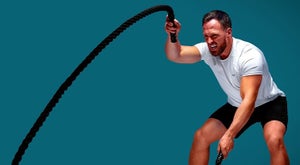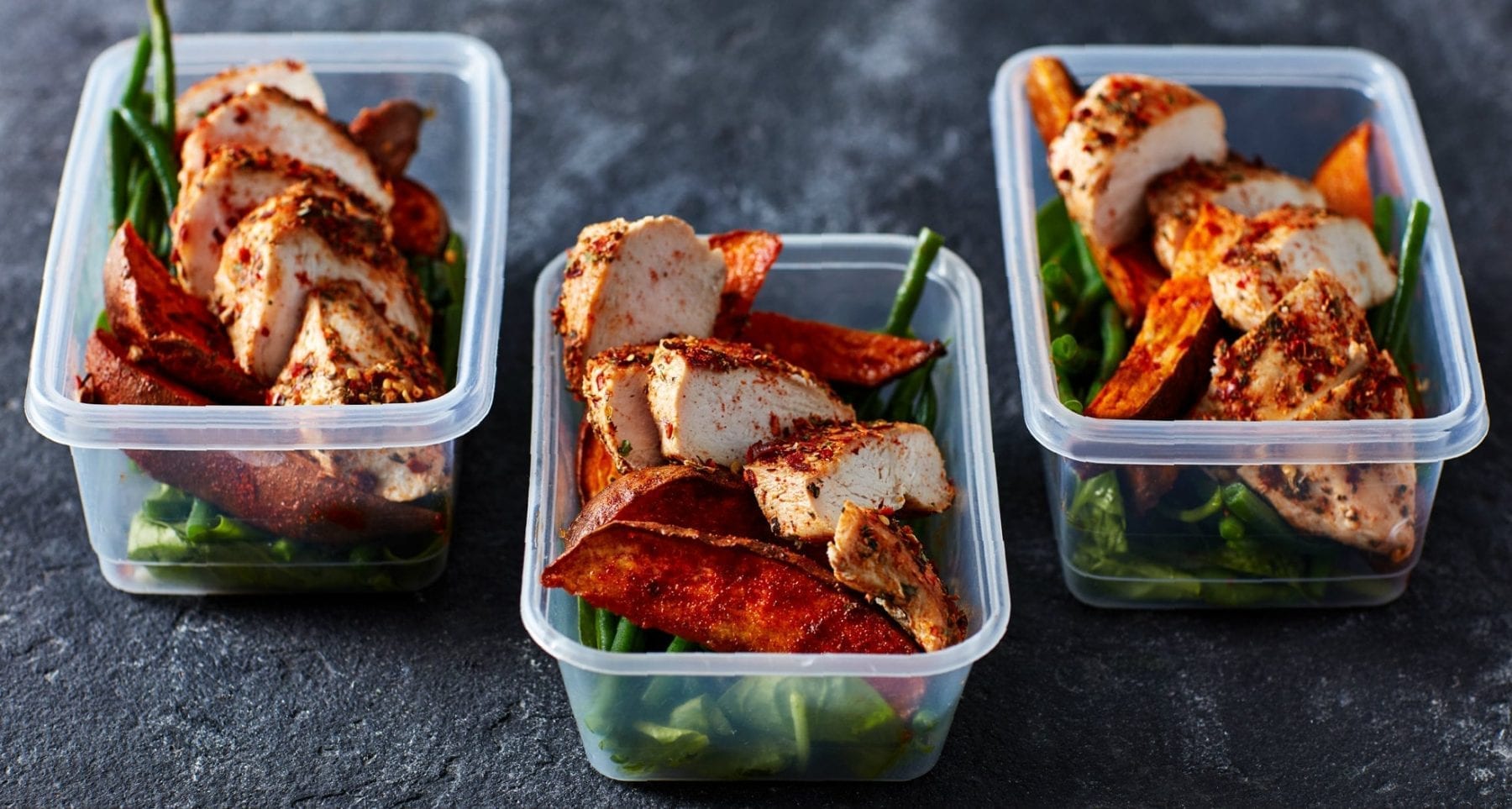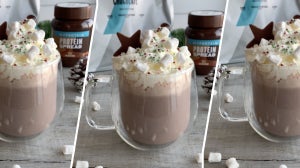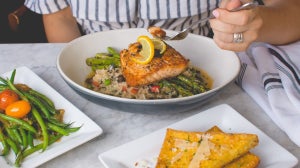
Whether you’ve been training for a number of years, or are new to the gym, you’ll likely have experienced some form of muscle soreness following a workout.
Having difficulty climbing the stairs after a tough cycle or a gruelling leg workout isn’t much fun, but the right nutritional strategy can help reduce post-workout pain and get you back in the gym sooner.
Why does it matter what you eat after a workout?
What you eat after a workout can have a big impact on how you recover from a training session. If you don’t recover properly, then you’ll not be able to perform as well next time you’re in the gym and this will limit the amount of progress you make.
What food to eat after cardio versus weights?
The type of training you perform and your current goal will dictate exactly what you need in your ideal post-workout meal. Both endurance training and resistance training are heavily reliant on glycogen, your muscle’s stored carbohydrate and both will damage muscle tissue.1 In order to reduce muscle soreness and recover properly for your next session, the glycogen you’ve used during training will need to be adequately replaced and you need to eat enough protein to repair muscle tissue.1
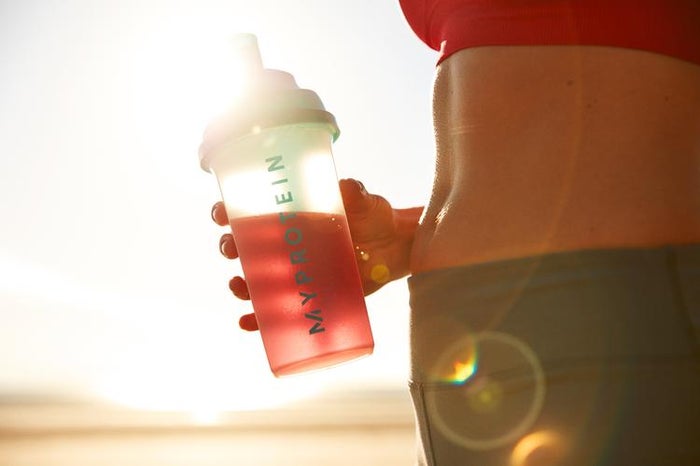
Carbohydrates
The process your body goes through to replace your depleted glycogen levels is called glycogen synthesis. When you eat carbohydrate foods, such as a jacket potato, your body will digest this, convert it into glycogen and store it in your muscle cells for energy later.2
A number of factors can affect how quickly your body can synthesise your glycogen stores and the topic has been heavily researched in the field of sport nutrition.1
Essentially, the faster you can replenish your glycogen stores, the better your recovery will be, enabling you to return to the same performance level in the quickest amount of time and reduce the amount of muscle soreness you experience.3
Foods that have the biggest impact on glycogen synthesis rates are easily digested, high glycaemic index (GI) carbohydrates.4 These include foods such as white rice and potatoes.5
When it's time to replenish your glycogen stores, the first few hours following exercise are particularly important.6 Your body is able to convert carbohydrate foods into glycogen, much faster post workout than under normal conditions.6
Adding protein to a post workout meal can also speed up the glycogen synthesis process.7 It’s believed that this is due to increased amounts of insulin activity caused by a combination of carbohydrate and protein being ingested.7
If changing your body composition and losing weight is the primary goal, full glycogen replenishment may not be necessary and in some circumstances, training with low glycogen availability may actually provide an advantage.8
There’s evidence to show that training in a glycogen depleted state can actually enhance the training adaptations that occur with consistent cardio training.8 These include increased mitochondria, (your body’s energy producing cells), increased capillaries which provide a blood supply to working muscles, and increased slow twitch muscle fibre production.8
Summary: You need carbohydrates post workout to replenish glycogen stores that your muscles use for energy. White rice and potatoes are great options as they’re easily digested.
Protein
In order for your muscle to repair, whether during endurance or resistance training, adequate protein intake is essential, as eating protein will ensure muscle is ‘rebuilt’ following a workout.
It’s well established that consistent resistance training will increase muscle protein synthesis and consequently muscle growth.9 Ensuring your daily protein intake is optimal will further enhance this.
The traditional post workout period is often referred to as the “anabolic window of opportunity”. Anabolic refers to muscle building, so this means it’s the best time to ingest protein to build muscle. This “window” is seen to be in the first hour immediately after a weights session.10
However, the current view is that this anabolic window of opportunity is not quite as important as once thought. Evidence suggests that this window of opportunity extends much longer than the initial hour, with benefits of protein lasting from 24-48 hours after a workout.10
So, there’s no reason to panic if you can’t immediately grab a protein shake.
That being said, there’s absolutely no evidence to show that protein ingestion within an hour has any negative effect on muscle building and a post-workout shake can be a really convenient way to get your protein in quickly.10
An optimal recovery strategy would be to ingest a protein shake within an hour or so of training and then to have a post-workout, high-protein meal within 3-4 hours.10
Summary: Your muscles need protein to repair and build more muscle. You can get your protein in any time between 24 to 48 hours after your workout to make the most of this muscle building.
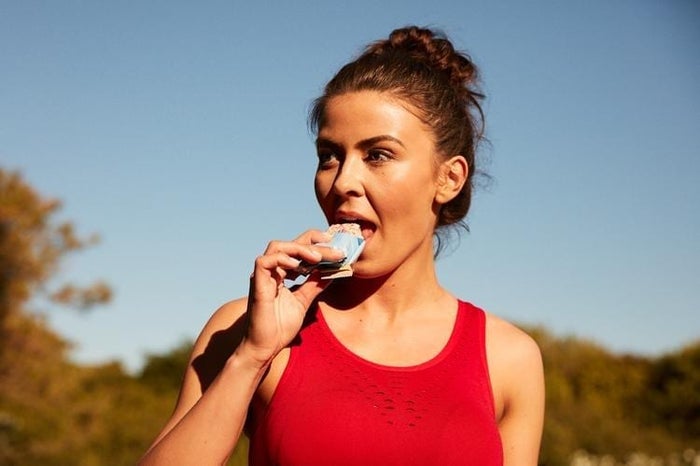
Post workout meal ideas
Tuna, jacket potato and salad
Tuna, jacket potato, and salad is a great post workout meal. It’s low in fat, which means it’ll be digested quickly, high in protein, with a tin of tuna containing 30-35g of protein, and a typical jacket potato providing around 40g of carbohydrates.11
A combination of protein and carbohydrates is great for boosting glycogen stores and for building muscle, so it’s a great meal whether you’ve done a cardio session or weight training.7
Post-workout snacks
Protein shake
A protein shake straight after a workout is a really convenient way to get your protein on board. A typical scoop of protein will contain around 20g-25g of protein which will be enough for most people to maximise muscle protein synthesis rates.12
If you’re looking to build muscle and need to hit a high daily protein goal, an easy way to do this is by throwing an extra scoop in your shake taking your post-workout protein.
Sports Drink
A great snack following a long endurance workout would be an energy drink containing a high number of carbohydrates. Immediately after a run or cycle is a great time to get carbs on board as your rate of glycogen synthesis will be much higher.6
A sports drink will also provide easy-to-digest carbohydrates. Straight after a workout, when you’re still red faced and sweating, you’re probably not going to feel like sitting down for jacket potato. Therefore, a cold sports drink may be a much more enjoyable way to get your carbs on board and kick start the glycogen synthesis process.
Milk
A glass of milk can provide a great post workout snack whether following a weight session or cardio training. A pint of skimmed milk will provide around 20g of protein and approximately 30g of carbohydrate.11
Skimmed milk is also very efficient at re-hydrating you after exercise.13 The data shows that skimmed milk actually hydrate you quicker than a glass of water.13
Best post-workout shakes
A great post workout shake for all-round recovery would include both protein and carbohydrates.7 Combining whey protein with a high-GI, simple carb, such as dextrose, is a good way to enhance muscle building and replenish glycogen stores.
Take home message
Getting your nutrition right after you have trained is an essential part of recovery. Proper recovery will reduce muscle soreness and ensure you can continue pushing towards your training goal.
Aim to include a good dose of protein and carbohydrates in your post-workout meal and this will boost muscle protein synthesis and restore your glycogen lost during exercise.
Our articles should be used for informational and educational purposes only and are not intended to be taken as medical advice. If you're concerned, consult a health professional before taking dietary supplements or introducing any major changes to your diet.
1. Kerksick, C., Wilborn, C., Roberts, M., Smith-Ryan, A., Kleiner, S., Jäger, R., Collins, R., Cooke, M., Davis, J., Galvan, E., Greenwood, M., Lowery, L., Wildman, R., Antonio, J. and Kreider, R. (2018). ISSN exercise & sports nutrition review update: research & recommendations. Journal of the International Society of Sports Nutrition, 15(1).
2. Costill DL, Sherman WM, Fink WJ, Maresh C, Witten M, Miller JM. The role of dietary carbohydrates in muscle glycogen resynthesis after strenuous running. Am J Clin Nutr 1981;3419):1831-6.
3. Murray, B. and Rosenbloom, C. (2018). Fundamentals of glycogen metabolism for coaches and athletes. Nutrition Reviews, 76(4), pp.243-259.
4. Wee, S., Williams, C., Tsintzas, K. and Boobis, L. (2005). Ingestion of a high-glycemic index meal increases muscle glycogen storage at rest but augments its utilization during subsequent exercise. Journal of Applied Physiology, 99(2), pp.707-714.
5. Foster-Powell K, Holt SH, and Brand-Miller JC. International table of glycemic index and glycemic load values: 2002. Am J Clin Nutr 76: 5–56, 2002.
6. Ivy JL, Katz AL, Cutler CL, Sherman WM, Coyle EF. Muscle glycogen synthesis after exercise: effect of time of carbohydrate ingestion. J Appl Physiol 1988;64: 1480-1485.
7. Berardi JM, Price TB, Noreen EE, Lemon PW: Postexercise muscle glycogen recovery enhanced with a carbohydrate-protein supplement. Med Sci Sports Exerc. 2006, 38(6):1106–13.
8. Impey, S., Hearris, M., Hammond, K., Bartlett, J., Louis, J., Close, G. and Morton, J. (2018). Fuel for the Work Required: A Theoretical Framework for Carbohydrate Periodization and the Glycogen Threshold Hypothesis. Sports Medicine, 48(5), pp.1031-1048.
9. Mitchel CJ, Churchward-Venne TA, Cameron-Smith D, Phillips SM (2015). What is the relationship between the acute muscle protein synthesis response and changes in muscle mass? J Appl Physiol. (2015). 118: 495-497
10. Aragon, A. and Schoenfeld, B. (2013). Nutrient timing revisited: is there a post-exercise anabolic window?. Journal of the International Society of Sports Nutrition, 10(1).
11. Ndb.nal.usda.gov. (2019). USDA Food Composition Databases. [online] Available at: https://ndb.nal.usda.gov/ndb/
12. Cuthbertson D, Smith K, Babraj J, Leese G, Waddell T, Atherton P, Wackerhage H, Taylor PM, Rennie MJ. Anabolic signaling deficits underlie amino acid resistance of wasting, aging muscle. FASEB J. 2005;19:422–424
13. Maughan, R., Watson, P., Cordery, P., Walsh, N., Oliver, S., Dolci, A., Rodriguez-Sanchez, N. and Galloway, S. (2015). A randomized trial to assess the potential of different beverages to affect hydration status: development of a beverage hydration index. The American Journal of Clinical Nutrition, 103(3), pp.717-723.

Liam is a certified sport nutritionist with the International Society of Sport Nutrition and is enrolled on the British Dietetics Association’s Sport and Exercise Nutrition register. He has a Bachelor’s of Science in Sport and Exercise Science and is graduate of the ISSN Diploma in Applied Sport and Exercise Nutrition.
Liam is an experienced personal trainer, helping clients reach their health and fitness goals with practical, evidence informed exercise and nutrition advice. In his spare time Liam has competed in numerous powerlifting competitions and enjoys hill walking, football and expanding his recipe repertoire in the kitchen.Find out more about Liam's experience here.
Related Articles
